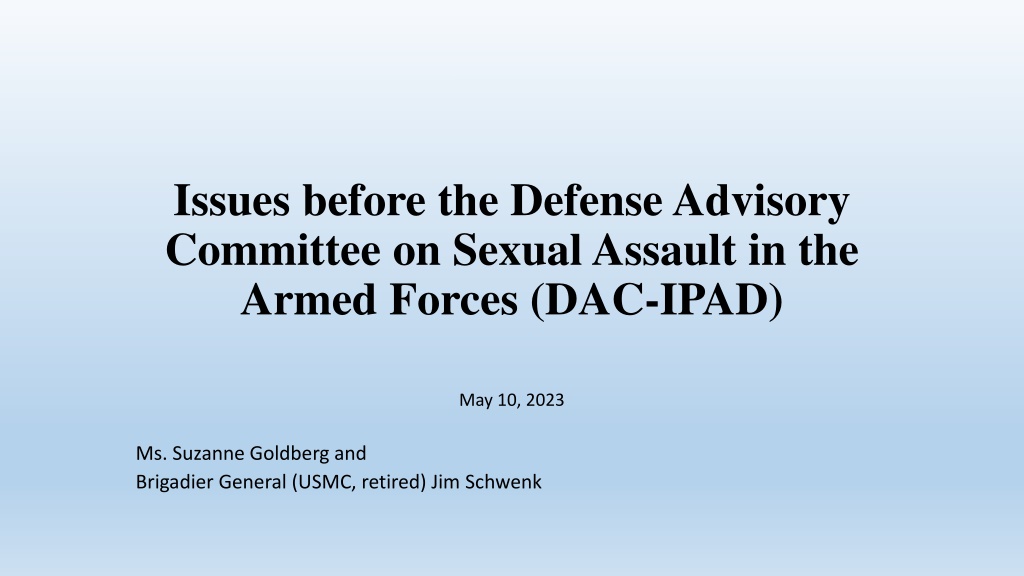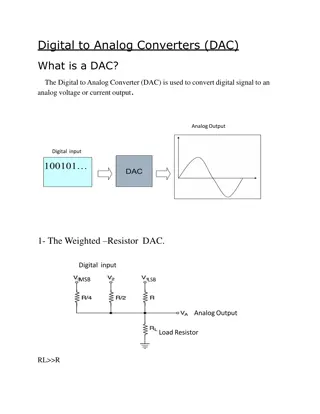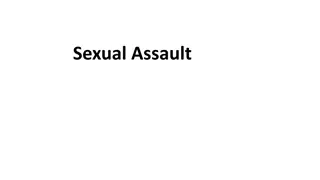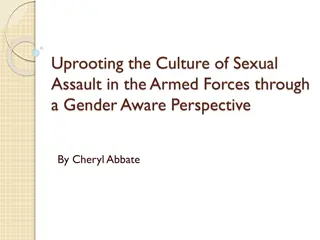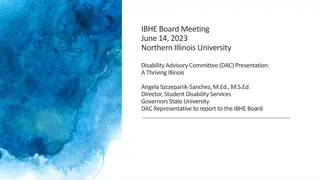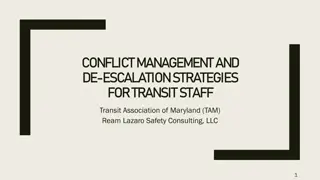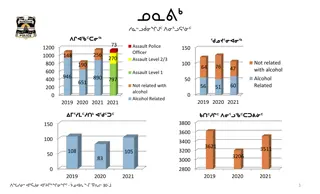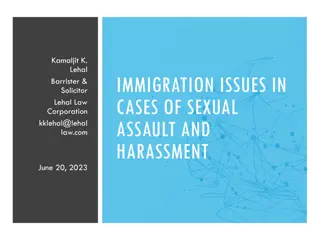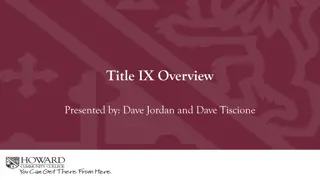Issues Before the Defense Advisory Committee on Sexual Assault in the Armed Forces (DAC-IPAD)
Explore the origin, charter, methodology, and mission of DAC-IPAD, established under the FY 2015 NDAA to provide independent advice on sexual misconduct cases in the military. Learn about the diverse membership, selection processes, sources of information, and key reports issued by the committee.
Download Presentation

Please find below an Image/Link to download the presentation.
The content on the website is provided AS IS for your information and personal use only. It may not be sold, licensed, or shared on other websites without obtaining consent from the author. Download presentation by click this link. If you encounter any issues during the download, it is possible that the publisher has removed the file from their server.
E N D
Presentation Transcript
Issues before the Defense Advisory Committee on Sexual Assault in the Armed Forces (DAC-IPAD) May 10, 2023 Ms. Suzanne Goldberg and Brigadier General (USMC, retired) Jim Schwenk
Overview Origin, Charter, and Membership Methodology Specific examples Investigative Case File Review Victim Impact Study Article 25 criteria and the demographics of panel selection
Statutory Authority and Mission Section 546 of the National Defense Authorization Act for Fiscal Year 2015 [FY 2015 NDAA], as amended: The DAC-IPAD shall provide independent advice and recommendations on the investigation, prosecution, and defense of allegations of rape, forcible sodomy, sexual assault, and other sexual misconduct involving members of the Armed Forces, based on its ongoing review of cases. The Committee can make recommendations for systemic change when, in the DACIPAD members collective judgment, it will improve the investigation, prosecution, and defense of sexual misconduct
Website https://dacipad.whs.mil DAC-IPAD Charter Reports Meeting materials and transcripts Public comments Upcoming meeting information Members
Members Federal and State Judiciary Prosecution Defense Victims Rights Command Judge Advocate General s Corps Academia Forensic Medicine Investigator
Selecting Topics for Review Congressional Taskings Requests from the DoD General Counsel Committee Decision
Sources of Information Witness testimony Requests for Information Case reviews Site visits to military installations/courts-martial observation Public comments Civilian advocacy groups
Reports and Letters Annual Reports: 2017 through 2023 Article 140a Implementation Letter to SecDef, September 2018 Victim Collateral Misconduct Letter to SecDef, September 2019 Court-Martial Adjudication Data Report, November 2019 Guardian Ad Litem Report, June 2020 Preservation of Restricted Reporting Option Letter to SecDef, May 2020 Report on Investigative Case File Reviews, October 2020 Report on Racial and Ethnic Reporting Data, December 2020 Report on SVC/VLC Tour Lengths and Reporting Structure, August 2022 Report on Victim Impact Statements, March 2023 Appellate Review Study, March 2023
Report on Investigative Case File Review Investigative case files and courts-martial records (charge sheets, Art. 32 report, Result of Trial (pre-STR)) Checklist used to record observations An independent criminologist performed data analysis Members made qualitative assessments of the evidence
Report on Investigative Case File Review There is not a systemic problem with the initial disposition decision. There is a systemic problem with the referral of penetrative sexual offense charges when there is not sufficient admissible evidence to obtain and sustain a conviction on the charged offense. The pretrial processes in Articles 32 and 34 allow cases to proceed to a general court-martial even when it is highly unlikely to result in a conviction, which contributes to a high acquittal rate for penetrative sexual offense charges. Recommend amending Article 34, UCMJ, to elevate the referral standard.
Pretrial Procedures and Prosecution Standards DAC-IPAD unanimously approved 3 recommendations: Article 32, UCMJ Appendix 2.1, MCM Training judge advocates
Report on Victim Impact Statements Congressional request Reviewed ROTs from courts-martial completed in FY21 Considered pending changes to sentencing landscape Found R.C.M. 1001(c) did not allow full opportunity for allocution and made 5 recommendations
Article 25, UCMJ, and Panel Selection Demographics Review criteria for selecting the venire in Article 25, UCMJ Race and gender diversity in panels in military sexual offense trials
Adoption of DAC-IPAD Recommendations Expansion of the expedited transfer policy Terminating an investigation at victim s request after a third-party report Improved process for submission of crime data to federal database Standardizing military justice data collection and a uniform document management system
Adoption of DAC-IPAD Recommendations Joint Explanatory Statement accompanying the FY22 NDAA emphasized: When determining whether to refer charges and specifications to a court- martial for trial, the convening authority, or, when applicable, the special trial counsel, should first evaluate whether admissible evidence will likely be sufficient to obtain and sustain a conviction in a trial by court-martial.
DAC-IPAD References Law reviews and journals Research papers (SSRN) News articles Other advisory groups: Independent Review Commission on Sexual Assault in the Military Military Justice Review Panel
